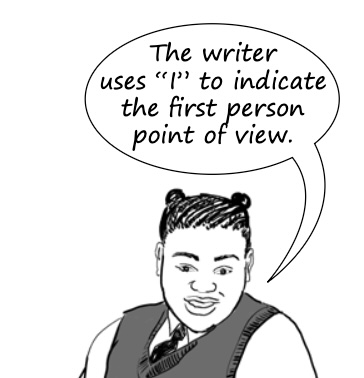Photo AI
Last Updated Sep 13, 2025
The Luncheon by W. Somerset Maugham Simplified Revision Notes for NSC English FAL
Revision notes with simplified explanations to understand The Luncheon by W. Somerset Maugham quickly and effectively.
350+ students studying
The Luncheon by W. Somerset Maugham
About the Author
- W. Somerset Maugham (1874–1965) was a British writer known for his short stories, novels, and plays.
- His writing often focuses on human nature, irony, and social satire.
- "The Luncheon" is a humorous short story about an awkward lunch meeting and social expectations.
Summary of the Story
- The story is narrated by a writer who recalls a luncheon he had 20 years ago with a woman who admired his work.
- She invited him to lunch at an expensive restaurant but claimed she only ate light meals.
- Despite her claim, she orders the most expensive items on the menu, while the narrator can barely afford his own meal.
- He watches helplessly as the bill drains his savings, yet she remains oblivious.
- The irony of the story is revealed in the last line: years later, the woman has become very overweight.
Themes
- Irony and Satire – The woman claims to eat lightly but consumes the most expensive food.
- Social Class and Pretense – The narrator struggles financially, while the woman pretends to be refined.
- Manipulation and Deception – The woman exploits the narrator's politeness.
- Revenge through Humour – The narrator gains satisfaction from seeing the woman's later transformation.
Structure & Style
- First-person narration – Makes the story personal and engaging.
- Chronological order – Follows the events of the luncheon from beginning to end.
- Humorous and sarcastic tone – Uses irony to entertain the reader.
- Contrast and exaggeration – Highlight the differences between the narrator and the woman.

Analysis by Section
Introduction: The Invitation
"I was living in Paris when I met her..."
- The narrator sets the scene by reminiscing about the past.
- He introduces the woman as an admirer of his writing.
- She suggests a meeting, choosing a fancy restaurant.
The Luncheon: The Meal Begins
"I never eat anything for luncheon."
- The woman insists she eats lightly, yet proceeds to order costly dishes.
- The narrator, struggling financially, feels nervous about the bill.
The Ordering of Expensive Dishes
"I think you are unwise to eat meat."
- The woman discourages the narrator from ordering what he wants.
- She claims to be health-conscious but keeps ordering more food.
- The narrator, too polite to object, watches as his money disappears.
The Climax: The Bill Arrives
"I had just enough to pay the bill."
- The narrator can barely afford the meal, while the woman remains unaware of his struggle.
- She expresses no concern about the cost.
The Ironic Ending
"She now weighs twenty-one stone."
- Years later, the narrator sees the woman again and notices she is now very overweight.
- This serves as poetic justice for her past gluttony.
Tone & Mood
- Tone: Humorous, sarcastic, ironic.
- Mood: Amusing, frustrating, light-hearted.
Key Literary Devices
- Irony – The woman's claim of eating lightly contrasts with her actions.
- Satire – Criticises social manners and manipulation.
- Exaggeration – Highlights the woman's excessive eating.
- Contrast – Between the narrator's poverty and the woman's extravagance.
Key Message of the Story
- Social status can create uncomfortable power dynamics.
- Irony reveals human hypocrisy and pretence.
- Humour can be a form of revenge.
Exam Tips
- Be familiar with key themes and how they are developed.
- Understand how literary devices contribute to meaning.
- Be able to identify quotes and explain their significance.
- Prepare to compare and contrast the story with others on similar themes.
- Structure essay responses clearly with introduction, body, and conclusion.
500K+ Students Use These Powerful Tools to Master The Luncheon by W. Somerset Maugham For their NSC Exams.
Enhance your understanding with flashcards, quizzes, and exams—designed to help you grasp key concepts, reinforce learning, and master any topic with confidence!
240 flashcards
Flashcards on The Luncheon by W. Somerset Maugham
Revise key concepts with interactive flashcards.
Try English FAL Flashcards32 quizzes
Quizzes on The Luncheon by W. Somerset Maugham
Test your knowledge with fun and engaging quizzes.
Try English FAL Quizzes29 questions
Exam questions on The Luncheon by W. Somerset Maugham
Boost your confidence with real exam questions.
Try English FAL Questions27 exams created
Exam Builder on The Luncheon by W. Somerset Maugham
Create custom exams across topics for better practice!
Try English FAL exam builder57 papers
Past Papers on The Luncheon by W. Somerset Maugham
Practice past papers to reinforce exam experience.
Try English FAL Past PapersOther Revision Notes related to The Luncheon by W. Somerset Maugham you should explore
Discover More Revision Notes Related to The Luncheon by W. Somerset Maugham to Deepen Your Understanding and Improve Your Mastery
96%
114 rated
Short Stories 1
The Soft Voice of the Serpent by Nadine Gordimer
429+ studying
195KViews